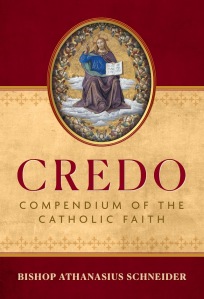As a convert to Catholicism myself, I decided to write this short essay explaining how to become Catholic for those who are interested. Now when I say Catholic, I mean really and truly Catholic. For there are many watered-down versions of Catholicism out there, and sadly, we live in a time when there is much corruption in the Catholic hierarchy as well. On the flip side, however, there are also great and holy men leading the Catholic Church in various places around the world. So even though the Church is currently going through difficult times, there is no reason to despair or shy away from becoming Catholic. With the right help (what I intend to provide here), you can become an incredibly strong and faithful Catholic in spite of these things. In fact, with the advice I’m about to give below, you’ll probably turn out even stronger than the average Catholic. What’s important is that people coming into the Catholic Church get access to the right information. So having been a Catholic for nearly a quarter of a century now, and having been formally trained as a catechist, and written multiple books on Catholicism, let me break this down for you in the simplest terms possible…
- Read a Catechism. To become Catholic you need to actually know the Catholic Faith in a way that is not watered-down, confusing or ambiguous. Therefore, I am going to recommend to you the best catechism on the market, and that is CREDO: Compendium of the Catholic Faith, written by Bishop Athanasius Schneider and endorsed by Cardinal Robert Sarah, Bishop Joseph Strickland and Dr. Scott Hahn. This is the most relevant and comprehensive ADULT catechism on the market today, designed specifically for laypeople (that means people who are not deacons, priests or bishops.) This is the ONLY adult catechism I recommend right now. There are others out there, and they have their strengths and weaknesses. Some Catholics may try to push those catechisms on you, particularly the Catechism of the Catholic Church (CCC). Be advised, however, the CCC was written for bishops not laypeople, so it’s a thick book, heavy reading, highly nuanced and sometimes confusing. CREDO, however, is written specifically for adult laypeople, with crystal clarity, and it’s the most comprehensive such catechism on the market. Whatever other catechism you might get on the side, make sure this one is front and center on your reading list. Get a hardcopy, or download the ebook, and start learning the Catholic Faith. There is no better source for laypeople.
- Start using a Catholic Bible. The best options out there (in English) are as follows. The Douay-Rheims Bible (DRB) is great if you like Sacral English (thee, thou, thy, hither and yon, etc.). This Catholic Bible was published just before the popular Protestant King James Version (KJV), using the same English dialect. You can read a sample of the DRB online here. If you prefer Common English, or Contemporary English, then I only recommend the RSV family of Catholic Bible translations: RSV-CE, RSV-2CE or NRSV-CE. You can read a sample of the RSV-CE here. The two other RSV translations (RSV-2CE and NRSV-CE) are nearly identical but with slight English modernizations and updates. I do not recommend any other English translations, because in most other English translations of the Bible, if the text itself is not watered down, then the footnotes are.
- Prepare yourself for criticism. If you happen to be dealing with a Protestant Fundamentalist background, or you’re dealing with Protestant friends and family giving you a hard time about becoming Catholic, I recommend my own apologetics book, written in a catechism style: “Are Catholic Christians?: A Guide to Evangelical Questions about the Catholic Church.” It’s pretty comprehensive, but easy to read, and has been used by catechists all over the world to deal with Fundamentalists questions concerning the Catholic Church.
- Find a good Catholic Church. If you’re in the United States, I recommend using Reverent Catholic Mass as a starting point. Not all Catholic Churches are the same. Some are more reverent than others. Some do a better job at being Catholic. Some will give you a better foundation in Catholicism than others will. Reverent Catholic Mass will point you in the right direction. If nothing is available to you nearby on the Reverent Catholic Mass map, then any Catholic Church will do. Some may not be ideal, but most are still adequate.
Shane Schaetzel is an author of Catholic books and an Evangelical convert to the Catholic Church through Anglicanism. His articles have been featured on LifeSiteNews, The Remnant Newspaper, Forward in Christ, and Catholic Online. You can read Shane’s books at ShaneSchaetzel.Com



You must be logged in to post a comment.